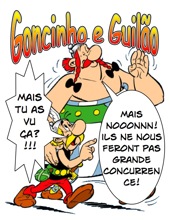Traducerea - Norvegiană-Spaniolă - jeg gÃ¥r pÃ¥ en skole som heterStatus actual Traducerea
Acest text vă stă la dispoziţie în următoarele limbi:  
Categorie Colocvial - Copii şi adolescenţi | jeg gÃ¥r pÃ¥ en skole som heter | | Limba sursă: Norvegiană
jeg går på en skole som heter |
|
| | | Limba ţintă: Spaniolă
Voy a una escuela que se llama |
|
Validat sau editat ultima dată de către pirulito - 3 Octombrie 2007 12:33
Ultimele mesaje | | | | |
2 Octombrie 2007 11:35 | | | Estoy en una escuela que se llama | | |
2 Octombrie 2007 20:05 | | | estoy = jeg er
me voy = jeg går | | |
2 Octombrie 2007 23:47 | | 
guilonNumărul mesajelor scrise: 1549 | Only "me voy" doesn't seem to fit here; when reflexive, the verb "ir" implies the idea of leaving or quitting.
Is that what the source text says? If not, "voy a una escuela que se llama" should be enough. | | |
3 Octombrie 2007 00:07 | | | | | |
3 Octombrie 2007 17:02 | | | Why do spaniards say that "it's invented" when the text is not well done? | | |
3 Octombrie 2007 17:56 | | 
guilonNumărul mesajelor scrise: 1549 | Why are you asking that, Casper? In Spanish, in this case when referred to foreign languages, we say that someone who doesn't know how to express something, "invents" (makes up) alternate words in order to fill that gap. | | |
3 Octombrie 2007 18:05 | | | Ha!
This is true. It happens in all languages. But sometimes it's just a misunderstanding of an expression, not a simple 'guess' of what matches there.
Well, the question about this 'invention' thing is because of this (I don't know why, but she's relly upset, huh), where she said "inventandose",
aaaand something you said to me in my last translation into spanish!  |
|
| 
